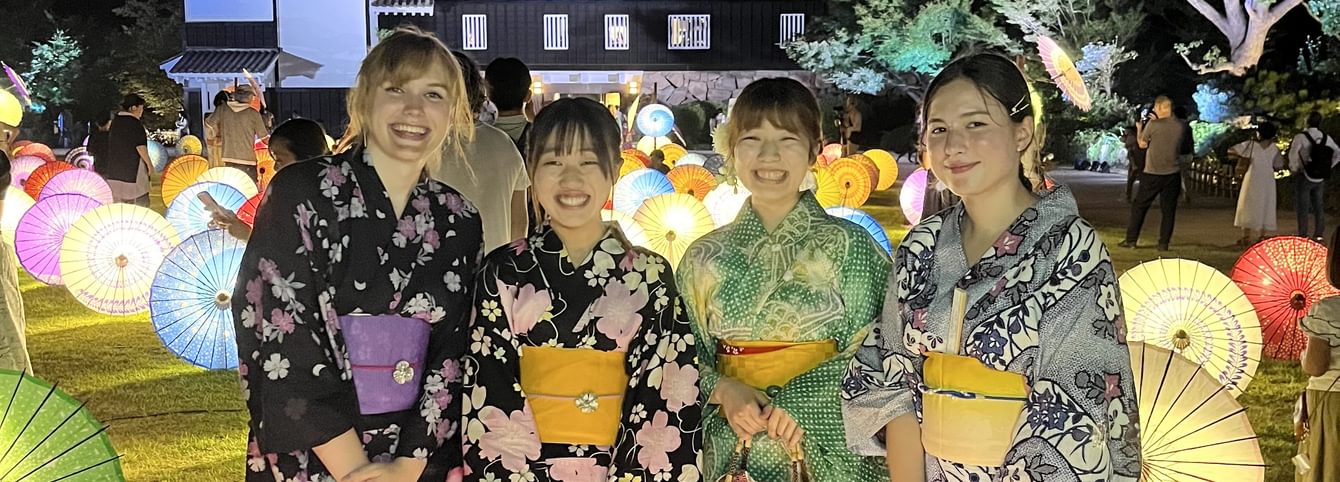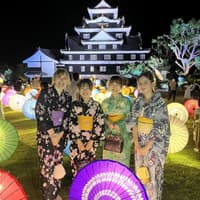Abby Fowler
Abby Fowler is a senior at the University in Iowa double majoring in International Studies with a focus in international business and Japanese Language and Literature. She is also earning a Museum Studies Certificate. Abby is currently working as a Public Affairs Specialist at the U.S. Department of State’s Bureau of International Security and Nonproliferation. She looks forward to applying her knowledge of Japanese culture and history in creating public-facing materials that are culturally informed.
Getting to Know Abby
I was born in Iowa City, Iowa, grew up in southeastern Wisconsin, returned to Iowa City for high school, and stayed for college in true boomerang fashion. Although my mom is an immigrant from the Philippines, my household growing up was generally devoid of Filipino culture. My strongest connection to my heritage was through my grandparents, who spoke Tagalog around me, cooked me Filipino food, and demonstrated the Filipino love of karaoke. They often spoke to me about their homeland, giving me insight into what life outside of the United States was like, which sparked my interest in world history and cultures at a young age. I enjoy reading literary fiction, which makes Iowa City (one of only two UNESCO Cities of Literature in the United States, and one of only three in North America!) the perfect place for me. I also enjoy visiting museums, especially natural history and science museums.
Why Japanese?
Japanese was something that I just fell into. I studied Spanish and Mandaring Chinese in high school, and while I really enjoyed studying languages in general, I wasn’t necessarily committed to either one. When I started college, I was given the option to continue one of these languages or pick something new. I decided to pick Japanese because it was somewhat similar to Mandarin and I was curious about how the writing system worked. Fast forward a few months, and I loved it so much that I declared my Japanese major halfway through my first semester. Now that I’ve begun studying it, I never want to stop, and I hope to have it with me for the rest of my life.
A Favorite Japanese Word
My favorite word in Japanese is 珍しい (mezurashi), which means “rare.” It’s a word I learned through casual conversation during the CLS Program and it quickly became my mantra. I often found myself thinking, “Since this is a mezurashi experience, I should try this new food!” or, “I should attend this optional activity!” I am very introverted and get socially exhausted easily, but this mindset helped me make the most of my time abroad, which was one of my goals going into the program.
Future Career Goals
After graduating this semester, I will be joining the U.S. Department of State’s Bureau of International Security and Nonproliferation as a Public Affairs Specialist, a position that I was able to apply for thanks to CLS non-competitive eligibility. As one can imagine, the issue of nuclear de-escalation is very interwoven with Japanese history. Although I will not be using my Japanese every day in this role, deep knowledge of Japanese culture and history will surely provide me important perspectives and sensitivities as I produce public-facing materials.
Similar Roots Halfway Across the World
I had so many incredible experiences during the CLS program that picking just one is difficult beyond belief. One of the most meaningful experiences, though, was when we met a group of high schoolers during a class trip to a rural village called Yakage and one of them was half Filipino, just like me. Of all places, I did not expect to find another half-Filipina in a tiny village in Okayama! Although I only got to speak with her briefly, it was such an eye-opening experience to meet someone with similar roots living halfway across the world.
Connections between Rural Iowa and Okayama
Just like Iowa, Okayama Prefecture is famous for farming. While the landscape of mountains and rice paddies was quite different from what I am familiar with, the rural and agricultural atmosphere made me feel right at home during the CLS Program. Additionally, I was surprised to find that many students at Okayama University, especially those studying agriculture, had heard of Iowa before! To those who hadn’t, I was able to tell them about Iowa by relating it to Okayama. After the program, I was able to do the opposite with my community in Iowa, relating Okayama to our home state.
Finding Satisfaction in the Challenge
From the perspective of an English speaker, Japanese is very challenging. The grammar is completely different, there are three different alphabets, and many phrases that I’m used to saying in my daily life don’t make sense when they’re translated literally. However, it’s precisely this challenge that I enjoy so much. As I’ve continued to study, conjugations and grammar that were extremely difficult at first have become second nature, which has been incredibly gratifying. If you are someone who finds satisfaction in overcoming difficulty, Japanese might be right for you!
Words of Advice
Given how competitive the CLS Program is, it’s very easy to have self-doubts. I, too, wondered if I was competitive enough, if I should even bother throwing my hat in the ring, if it was worth putting myself out there and pouring hours into my application. Now, looking back, I am so thankful that I took that risk. CLS has had such a profound impact on my life and career, and I cannot imagine where I would be now without it. Even if you don’t make it the first time, revise, use your resources, and try again. CLS is worth trying for. Though it may feel intimidating to reach out to alumni, I promise that we are all incredibly excited to talk to you! If there is anything on your mind, I highly encourage you to reach out.




